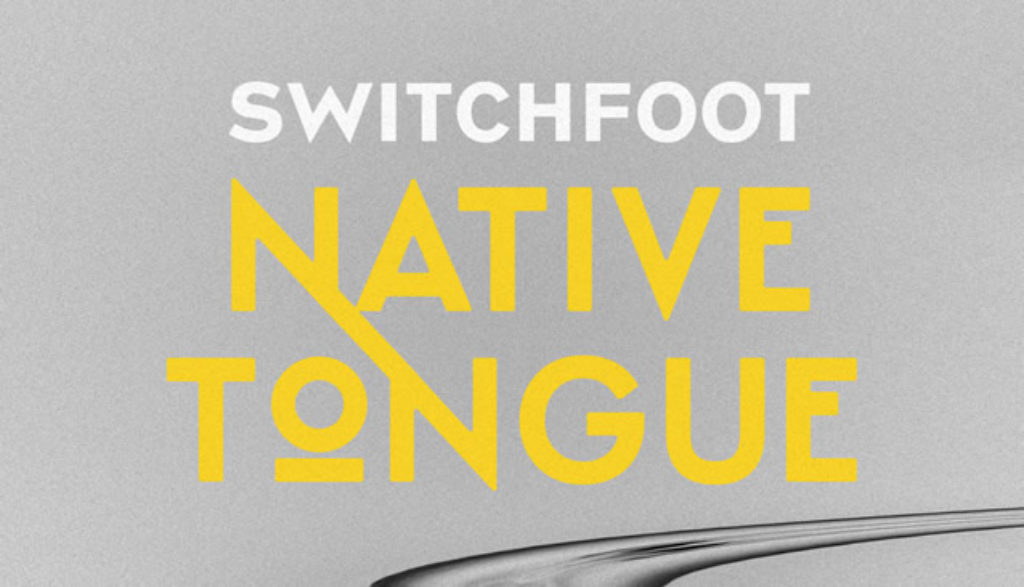
Artists making political statements is hardly a new thing. But usually when they make them, you know what side they’re on. Artists—be they musicians, actors, directors, comedians—who feel brave enough to wade into political waters usually don’t leave much doubt about what their opinion is.
Which brings us to Switchfoot.
This San Diego alt-rock outfit has always had a penchant for paradox, for artfully articulating how and why two very different things can be true simultaneously. How can we hurt so deeply yet hope so profoundly? Myriad Switchfoot songs have spoken to that tension since the band’s 1997 debut album, The Legend of Chin.
So what happens frontman Jon Foreman and his fellow bandmates turn their attention toward our deeply divided cultural moment? Thankfully, the result is in step with what we’ve seen from Switchfoot over the years: an invitation to be honest with ourselves and to seek common ground with others—even those we don’t agree with.
Album opener “Let It Happen” sets the stage for Native Tongue, describing a noisy, disorienting world in which “the voices are screaming but where is the meaning?” Foreman and his band wisely realize that we may not be able to solve all of these problems overnight (“Tomorrow knows what tomorrow knows/You can’t make it get here sooner”), and that we must lean on those closest to us during times of unease (“I don’t hold what the future holds/But I know you’re my future”).
Title track “Native Tongue” reminds us that love is language we’re called to speak to each other: “Love is the language, love is your native tongue.” The song also asks, “My friend, where did we go wrong?” as well as confessing, “My Lord, we forgot our sound.” The band insists that the language of love is “louder than the darkness and doubts/Louder than the curses and the shots.”
Love is also the subject of “All I Need”: “All I need is the love that I believe in.” At the same time, though, Foreman vulnerably confesses that sometimes we need others to love us amid seasons of doubt or exhaustion: “Tell me love, do you believe in me?/ … Even when I feel low and lonely/Even when the road feels like the only friend of mine?” “The Hardest Art” likewise reminds us of love’s power even as the band (joined by guest singer Kaela Sinclair) admits, “It feels like love is the hardest art to learn.”
“Voices” implies that when all we do is listen to the cacophony of our culture’s warring voices, we may end up feeling disoriented: “And I used to listen to the radio/But I’ve got an army of voices in my head.” Amid the swirl of so many opinions, Foreman subtly suggests that there’s one voice—perhaps God’s, perhaps that of a loved one—that will help us navigate through the noise: “Every moment crowded with choices/Speak to me and drown out the voices.”
“Dig New Streams” invites those tormented by “echoing fear/Echoing death” to “dig new streams.” Later, the song directly recalls Jesus’ words in Matthew 11:28-30 when Foreman sings, “Come all you worn out, burned out, sick and tired/ … Come unto me, find rest, my burden’s light.” The song perhaps suggests that our passions in life as well as abusive spiritual legalism can both be sources of emotional wounding: “If you’ve been hurt by the birds and bees of life/If you’ve been hurt by the church of black and white/ … Love, let us live new streams/Where water and word are clean.”
“Joy Invincible” chronicles a man’s painful path to hope as a loved one suffers through sickness and perhaps dies. “Prodigal Soul” finds a weary man longing to return to God: “I’m a prodigal soul/And I want to come home/I can’t make it alone/Won’t you bring me home?” Another prayer turns up on “Wonderful Feeling”: “And after all this time spent chasing my shadow/Let Your light be mine/ … Let all of Your love pour down.”
“Take My Fire” juxtaposes life’s fiercest trials against the band’s equally fierce determination to persevere. “The Strength to Let Go” emphasizes the importance of mercy over power (“I choose mercy instead of control”) and realizing that our lives are not our own (“My life is on loan/Forgive and let go”) as we accept God’s forgiveness (“To lay Your life down/Your forgiveness is where I am found”).
“Oxygen” honestly processes deep pain and the disorientation that comes with it. “We’re Gonna Be Alright” gently reminds those who’ve been deeply wounded of that important message. And album closer “You’re the One I Want” speaks those words to someone who’s dear and beloved.
None.
In an interview with The Christian Post, Jon Foreman said of this album’s themes, “We have a common drive for goodness, for greatness, and to see the ideals in which our country was founded lived out. I’m reminded that underneath all of that, even as a believer, I see the idea that there’s something inherently beautiful about this person that I vehemently disagree with. There’s a compassion and grace that starts the conversation. …
So let’s start there, let’s start with this commonality, this identity, and let’s move from there.”
I don’t know about you, but Foreman’s words above—and in the 14 songs on this album—feel like a breath of fresh air to me. He realizes that we won’t always agree with each other, but he encourages a relationship with others based on honesty, respect and decency. And he insists, over and over again, that what matters most is loving others even as we receive and embrace the love and forgiveness that God offers us.


After serving as an associate editor at NavPress’ Discipleship Journal and consulting editor for Current Thoughts and Trends, Adam now oversees the editing and publishing of Plugged In’s reviews as the site’s director. He and his wife, Jennifer, have three children. In their free time, the Holzes enjoy playing games, a variety of musical instruments, swimming and … watching movies.